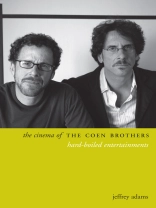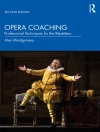The films of the Coen brothers have become a contemporary cultural phenomenon. Highly acclaimed and commercially successful, over the years their movies have attracted increasingly larger audiences and spawned a subculture of dedicated fans. Shunning fame and celebrity, Ethan and Joel Coen remain maverick filmmakers, producing and directing independent films outside the Hollywood mainstream in a unique style combining classic genres like film noir with black comedy to tell off-beat stories about America and the American Dream. This study surveys Oscar-winning films, such as
Fargo (1996) and
No Country for Old Men (2007), as well as cult favorites, including
O Brother, Where Art Thou? (2000) and
The Big Lebowski (1998). Beginning with
Blood Simple (1984), it examines major themes and generic constructs and offers diverse approaches to the Coens’ enigmatic films. Pointing to the pulp fiction of Dashiell Hammett, James M. Cain, and Raymond Chandler, the study appreciates the postmodern aesthetics of the Coens’ intertextual creativity.
Зміст
Acknowledgements
Introduction
1. Blood Simple: ‘It’s the Same Old Song’
2. Raising Arizona: A State of Mind
3. Miller’s Crossing: ‘A Handsome Movie about Men in Hats’
4. Barton Fink: ‘For the Common Man’
5. The Hudsucker Proxy: A Comedy of Reinvention
6. Fargo: In the Land of Tall Tales
7. The Big Lebowski: ‘The Dude Abides’
8. O Brother, Where Art Thou?: The Hayseed Epic
9. The Man Who Wasn’t There: Recreating Classic Film Noir
10. No Country for Old Men: Darkness in the New West
11. A Serious Man
Conclusion: The Ends of the Auteur: Drawing Conclusions About Coen Brothers Movies
Filmography
Bibliography
Index
Про автора
Jeffrey Adams is associate professor at the University of North Carolina, Greensboro. He is the editor of
Mörike’s Muses: Critical Essays on Eduard Mörike and
Mimetic Desire: Narcissism in German Literature from Romanticism to Postmodernism.












